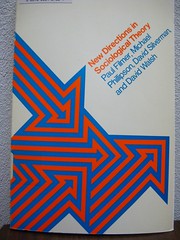It has been frequently mentioned that Cash is King, and the current American culture would readily agree. A brief examination of the present financial state in the United States further supports this statement. Looking back at history, it becomes evident that financial status has directly influenced sociology and culture as a whole since the dawn of human existence.
To understand how economics affects sociology and culture, one needs a basic understanding of sociology, culture, and economics. Sociology, in its simplest form, applies the scientific method to the social world. It aims to analyze society (pure sociology) and, based on that analysis, seek to reform society (applied sociology). Sociologists observe cultures and events as objectively as possible and document their findings. If practicing applied sociology, they compile reports identifying social issues and behaviors, offering explanations and solutions for the observed problems.
Culture can be understood as patterns of human activity. Underlying this basic definition are symbolic structures and traditions that provide the foundation of culture. Based on this understanding, it is reasonable to assume that people shape their culture rather than the common belief that culture shapes people. However, it is also reasonable to acknowledge that when confronted with thousands of years of culture, individuals cannot help but be influenced by the cultural patterns of their parents and the traditions of their geographical location.
Studying culture has become increasingly complex due to the growing number of cultures and cultural factors. For every existing culture, there are subcultures. Beneath these subcultures lie lists of factors ranging from age, geographic location, and family values to race, religion, and family customs. Within each culture, there are individuals who live among the culture but may not necessarily agree with or adhere to all aspects of it. These individuals are referred to as “counter-cultural.” Counter-cultural individuals may completely disagree with a culture or only on specific cultural issues. Although counter-culture is not widespread, it cannot be discounted, as social change is often brought about through counter-cultural movements.
It is interesting to note that culture does not always conform to itself. Culture as an ideal is flawless. It consists of a group’s ideal norms and values. However, idealism does not always match reality. Real culture refers to the actual behaviors that fall short of cultural ideals. This does not imply that the ideals themselves are flawed. Rather, the distinction between ideal culture and real culture suggests that people are fallible and prone to error.
Economics is a social science that analyzes the production, distribution, and consumption of goods and services. Lionel Robbins defined economics as “the study that examines human behavior as a relationship between ends and scarce means that have alternative uses.” While many people believe that economics is primarily confined to the study of business, its influence is much broader. Economic principles can be applied to education, family, law, politics, and even warfare. The overarching impact of economics on other social sciences is often referred to as “economic imperialism.”
Every social event has both cultural and economic dimensions. By employing simple observational skills, sociologists can observe that American culture is increasingly consumerist. Consumers will go to great lengths to keep up with the latest trends and lifestyles, often resorting to maxing out their credit cards. The American culture places great emphasis on instant gratification, leading to impulsive spending and mounting debt. The satisfaction derived from making a purchase is not reciprocated when the end of the month arrives and the credit card statement is due.
It is argued that sociological and cultural ideals played a significant role in the current financial market meltdown in the United States, and in some cases, globally. In America, there is a cultural ideal known as “The American Dream,” which often evokes images of a typical family with three children, two cars, a nice home with a pool, and a garage. Some banks and financial lenders capitalized on this ideal and began offering low-rate variable interest financing that was below the prime mortgage rate set by the Federal Reserve, leading to what became known as subprime mortgages.
Idealistic American consumers saw these low rates and decided that it was an opportunity to pursue the American Dream. They took out large mortgages for homes they would otherwise not be able to afford. Gradually, as the interest rates on these variable rate mortgages started to rise, homeowners found themselves struggling to keep up with the increasing payments. Many homeowners eventually fell behind on their mortgage payments and defaulted. As a result, over 1.5 million homes have been lost, and the aftermath is still being felt as financial institutions and banks continue to fail or be acquired. Who could have predicted that such a significant financial crisis Global Financial Crisis and Books - While the entire world is facing the global financial crisis, publishers rush to get crisis books out. Not exactly a complaining, there are some interesting writings to check out. But I would like to know your ideas about this rush. Anyway, here are my suggestions for these months: Global Financial Crisis and Books The Subprime… would stem from sociological and cultural ideals?
In the aftermath of the financial meltdown, new sociological and cultural movements are emerging. There is an increased determination among Americans to exercise self-control over their spending behavior. People are becoming more cautious about investing due to the recent risks and vulnerabilities of the stock market. One of the most notable cultural movements during this financial turmoil has been the resilience of the classic American spirit. In times of difficulty, the United States of America grows stronger, and its residents rally together to help one another and meet each other’s needs.
Through the study of economics, sociologists can observe the deep integration and synthesis between sociology, culture, and economics. Each domain has an impact on the others. An economic event cannot occur without some form of sociological and cultural impact following it. Similarly, sociological or cultural movements cannot take place without provoking some kind of response within the economy.
Manuel Marino is a seasoned Senior Producer, Music Composer, and Artist with over a decade of experience. He specializes in branded entertainment across various mediums, including video games, films, and advertising campaigns. With 20+ years as a game music composer, Manuel has worked on numerous platforms, creating diverse orchestral soundtracks. HIRE ME


 Manuel is a passionate, driven, and techsavvy AV technician,
Manuel is a passionate, driven, and techsavvy AV technician, 




